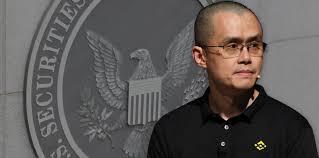Blockchain has been shortlisted in 22 provinces, autonomous regions, and municipalities. This year's government report. Industry opportunities?
"Finance No. 1 Academy" observed that from a macro level, most provinces, autonomous regions and municipalities expect the blockchain to provide technical assistance for the optimization and upgrading of local industries, which can be used as a new growth point for the digital economy.
From a micro level, some provinces have different expectations for the blockchain, and their requirements are more clear and detailed.
Specifically, Beijing, Tianjin, Gansu, Shanghai, and Chongqing 5 provinces and cities are more focused on strengthening blockchain technology research and achievement transformation; Beijing, Jiangxi, Shandong, Guangdong, Hainan, Fujian, and Gansu 7 provinces and cities have identified the blockchain In the application scenario direction, e-government has become the biggest demand; Chongqing, Shandong, Hainan, and Shaanxi have proposed the construction of blockchain-related industrial parks.
- Many mainstream project development funds are facing "burnout". Should BCH levy a miner tax?
- Anchor Coin Watch: Can Bitcoin on Ethereum Break the DeFi Ceiling?
- Demystifying the IOTA mainnet suspension, bZx and SIM being hacked, doing so can improve account security
Attached are the blockchain policies in the work reports of 22 provinces, autonomous regions and municipalities:
1.Blockchain helps transform and upgrade traditional industries

2.Blockchain as the new kinetic energy of the digital economy

3.Strengthen the research and achievements of blockchain technology

4. Clarify the direction of blockchain application scenarios

5.Construction of blockchain-related industrial parks

We will continue to update Blocking; if you have any questions or suggestions, please contact us!
Was this article helpful?
93 out of 132 found this helpful
Related articles
- Sue against FB, buy spaceship tickets with BTC, bitcoin career of billionaire "Gemini" brothers
- Front Running: The Achilles heel of decentralized trading
- 18 felonies and up to 20 years in prison! Former Microsoft employee convicted of digital currency scam
- What does De in DeFi mean and what does it mean for the blockchain industry?
- Bitcoin fell below $ 9,200, and the entire network was over $ 300 million in short positions. Is the halving quotation not over yet?
- Over 43% of Ethereum addresses are profitable, and researchers are optimistic that Ethereum will become a new hedge
- Comprehensive interpretation: What is the impact and value of the US SEC Commissioner's "Token Safe Harbor Proposal"?






